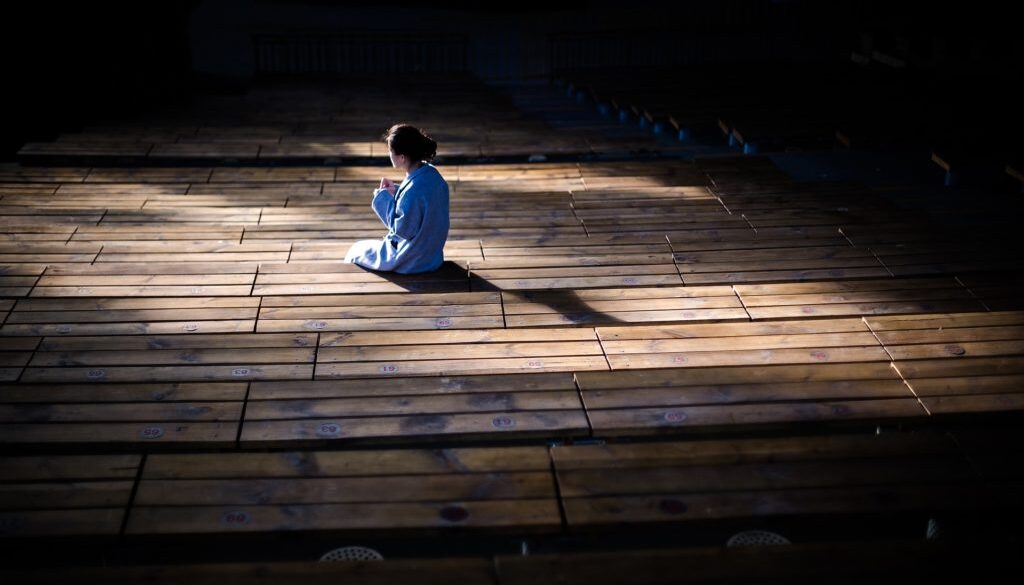Singling Out Women
This week has been hard on women.
Parashat Emor, the Parashah we read today, is undeniably bookended by misogyny. The portion opens with a discussion of what defiles the holiness of Kohanim, the Priesthood. Apart from coming in contact with death – even the death of close relatives – a Kohen is defiled through marriage. The Torah couldn’t be more explicit in its proscription:
Ishah zonah v’challelah lo yik’chu v’ishah gerushah me’ishah lo yik’chu ki kadosh hu le’Elohav – They [the Kohanim] shall not marry a woman who is a prostitute or who is desecrated, and they shall not marry a woman who is divorced from her husband for he [the kohen] is holy to his God. – Lev. 21:7.
In other words, a Priest cannot marry a woman who is considered ‘damaged goods’.
While there are surely lofty sections in the portion, we also find a troubling text towards the end. A man, after being caught up in a fight, is found blaspheming (although it is not clear what this exactly means) and is punished by the collective community. Up to this point, this text does not bode well for the freedom of religious expression, it admittedly becomes more problematic further on. ‘Now his mother’s name was Shelomith daughter of Dibri of the tribe of Dan’, the Torah tells us, explaining to the reader (or listener) that the blasphemer was of mixed Egyptian-Israelite lineage. And not only that—the Torah seems to list the mother’s precise identity and lineage to shame her publicly. Was her son’s moral failing a taint upon her own dignity? The text certainly seems to suggest so as it posits not just correlation but causation between the woman’s intermarriage and her son’s sin.
Just to be clear: at the beginning of our portion, a woman is shamed for having sexual agency (or at least a romantic history) and so is a woman shamed towards the end of Emor. In both cases, a key patriarchal norm has been violated: that of moral and sexual purity. In both cases, the Israelite polity cannot condone these desecrations – they must, in some way, be prevented, punished or excised.
When we visit the commentaries, not much improves. Rashi, citing Tractate Yevamot 61b, tries to offer a redemptive perspective in the case of the ‘ishah zonah’, the ‘prostitute’. He defines ‘ishah zonah’ as ‘a woman with whom an Israelite who is forbidden to her, has cohabited, for example, a relationship punishable by excision (a descendant of the Gibeonites who were converted at the time of Joshua and who were forbidden to marry into Israel for all generations], or a mamzer [a product of a forbidden union].’
Instead of explaining away the prohibition in a way that would make us moderns feel comfortable, he explains it away by asserting social hierarchy. There are classes of people, mamzerim or nathinim (Gibeonites), who are considered defective because again, they have violated some invisible code of purity. Rashi’s explanation entrenches a class system and doubles down on the essentialism of the prohibition. Not only is the ‘ishah zonah’ an individual who has displayed a moral failing, but she may very well belong to a class of people whose lineage is somehow existentially and irreversibly corrupted!
The commentaries dealing with Shelomith are equally troubling. According to ‘The Torah, A Woman’s Commentary’, most Rabbis shamed Shelomith for her actions, considering her intermarriage promiscuous. ‘Others said the Torah recorded her name in full because she alone behaved in a promiscuous manner, whereas the other Israelite women acted modestly and did not consort with foreign men’, our commentary explains, citing the wisdom of Rabbi Judith Hauptman who draws this from Midrash Bamidbar Rabbah.
Of course, we could flip, spin or reinterpret the text. I tend to read the Torah with forgiving eyes – something that I’ve received push-back on from more critical voices. But what if we don’t read these passages with forgiving eyes but read them with the stark clarity which reveals that the world of the Torah is a man’s world? Maybe we are weary of bending the words of Torah to our will and just see them for what they are.
Cruel words that single out women. That punish and shame women. That decry women’s sexual agency. That circumscribe women’s alleged purity.
Like I said, this week has been hard on women.
I am still processing – and I’m sure many of us are – the outcomes of the Alabama and Missouri votes curtailing women’s reproductive freedom. I do not want to use this time to discuss Judaism’s stance on abortion – I gave a sermon on that a number of weeks ago. What I want to do is to look beyond the legal mechanisms restricting reproductive healthcare and gaze into the heart of Patriarchy. Whether one considers potential embryonic or fetal life sacred or not, a person with inalienable rights or not, may very well not be the only battleground issue in what we are seeing unfold in America today. What is at play is not just the contents of a woman’s womb, but the contents of her character; her intrinsic value as a human being, entitled to equality and dignity, made in the image of God. What is up for implicit discussion is the same concern that Leviticus articulates here: the purity of the woman, her body as a moral battleground, her sexuality reduced and bounded and bent to the wills of men.
We must contend with the questions behind the questions. Is patriarchy a natural outflow of religiosity? Who controls the interpretation of Biblical texts and the application of theological language? And by what authority can one person’s moral code impose limitations on another person’s moral agency? What are the ways in which we shame women: for their God-given physiology and their innate and normal human sexuality? These are hard and triggering questions. They often clash and mesh with our personal experiences and individual morality. As individuals, we may make different choices, engage in different behaviors, draw on different experiences. But, as the ‘ishah zonah’ and Shelomith demonstrate: behind absolutist moral pronouncements lies a world of pain.
It is not up to us to judge that pain but to offer balm to the wound.
And it is up to us to reclaim sacred language and holy narrative to this end.
In the Reform rabbinic compendium ‘Moral Resistance and Spiritual Authority, Our Jewish Obligation to Social Justice’, Rabbi Emily Langowitz writes the following in her essay ‘What Reproductive Justice Might Look Like’:
Some would argue that the solution for such an imbalance [regarding the Christian discourse on women’s reproductive rights] would be to fully excise religion from public political discourse. It is my belief, however, that the antidote to a conservative religiously driven political agenda on reproductive rights is not a call for the removal of faith from public life, but the presentation of a platform of reproductive choice firmly rooted in a different understanding of religious values. As progressive religious leaders, then, we have both the opportunity and the moral responsibility to offer nuanced religious language in discussing abortion and all facets and stages of the reproductive life cycle.
We can find profound sympathy and engender great respect for unborn life and the sanctity thereof, and even differ philosophically on the definitions of such life, without shaming or punishing women. We can discuss policy and regulation, strategize on how to support pregnant people and build a more just society where infants, children and vulnerable mothers are cared for with equity. We can even make private decisions on what we may choose to do ourselves when presented with such gut-wrenching dilemmas but what we must not do is commit the blasphemy of knowing, judging and condemning.
May we build a world where we celebrate and support women. Where we upend the tropes of Leviticus and the judgments of modern society and where we leverage this ancient, difficult text for compassion and dignity. I will close with Rabbi Langowitz’ words:
As people of faith, we have a responsibility to counteract the dominant societal narrative that assumes that religion is against abortion, reproductive and sexual health access, and reproductive justice. This means that the work we do is twofold: to speak out and reclaim the public narrative around religion and reproductive justice, and to continue to take action that ensures that all people have the access to the information, health care, and services that will reflect their dignity as creative agents made in the image of God.
May that be Your will, ken yehi ratzon.



